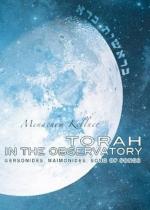|
This section contains 6,977 words (approx. 24 pages at 300 words per page) |

|
SOURCE: Rudavsky, T. M. “Individuals and the Doctrine of Individuation in Gersonides.” New Scholasticism 56, no. 1 (winter 1982): 30-50.
In the following essay, Rudavsky explores the nature of individuals and of prime matter as posited by Gersonides and his contemporary Johns Duns Scotus.
The attention in 14th century philosophical writings accorded to the status of individuals developed for several reasons. For many scholastics, the problem of individuals arose out of specific theological considerations surrounding the doctrine of the Trinity, as well as out of more ontological and logical issues resulting from commentaries on Porphyry's Isagoge.1 However for Gersonides, a Jewish philosopher writing in 14th century southern France, considerations of a more epistemological nature prompted his interest: more specifically, the question of whether God knows future contingents raised a number of questions concerning the nature of particulars, the distinction between individuals and particulars, and problems associated with individuation.2
Having posited in...
|
This section contains 6,977 words (approx. 24 pages at 300 words per page) |

|


